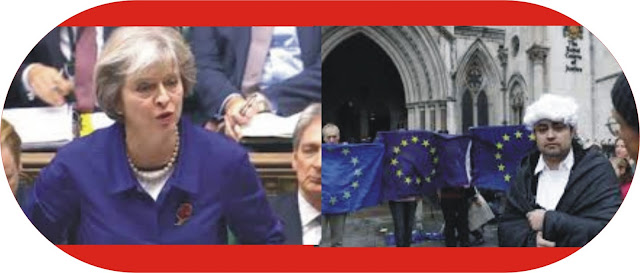Jubilation as the High Court rules that Parliament must vote
on whether the UK can begin the way toward leaving the European Union. This
implies the administration can't trigger Article 50 of the Lisbon Treaty -
starting formal talks with the EU - all alone.
Earlier on, Theresa May said the EU referendum - and
existing ministerial powers - mean MPs don't have to vote, yet campaigners
called this illegal.
However, the government has said, it is going to appeal the
High Court ruling at the Supreme Court.
Ministers were given the thumbs up for a further hearing to
occur at the Supreme Court, which is required to happen before the end of the
year.
The Theresa May has said she will enact Article 50, formally
telling the EU of the UK's aim to leave, before the end of next March. This
takes after the UK's choice to back Brexit in June's referendum by an edge of
51.9% to 48.1%.
The EU's other 27 member countries have said arrangements
regards to the terms of the UK's exit cannot start until Article 50 has been
summoned.
Gina Miller, who brought the case, said outside the High
Court that the government ought to make the "wise decision of not
appealing".
BBC aide political editorial manager Norman Smith said, if
the court's ruling was not upset, there could be "months and months"
of parliamentary obstacles ahead.
There should have been "clarity" on whether there
would be a "short, sharp" vote or Parliament would need to consider
complex enactment, he included.
In any case, he said most MPs would be probably going to
vote in favour of Article 50, as Brexit had been upheld by a lion's share of
voters in the choice.











No comments:
Write comments